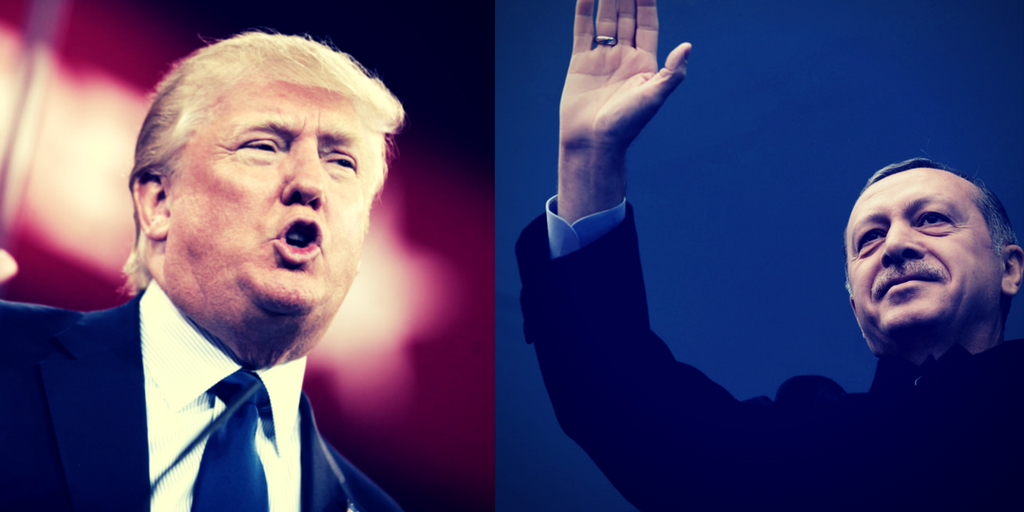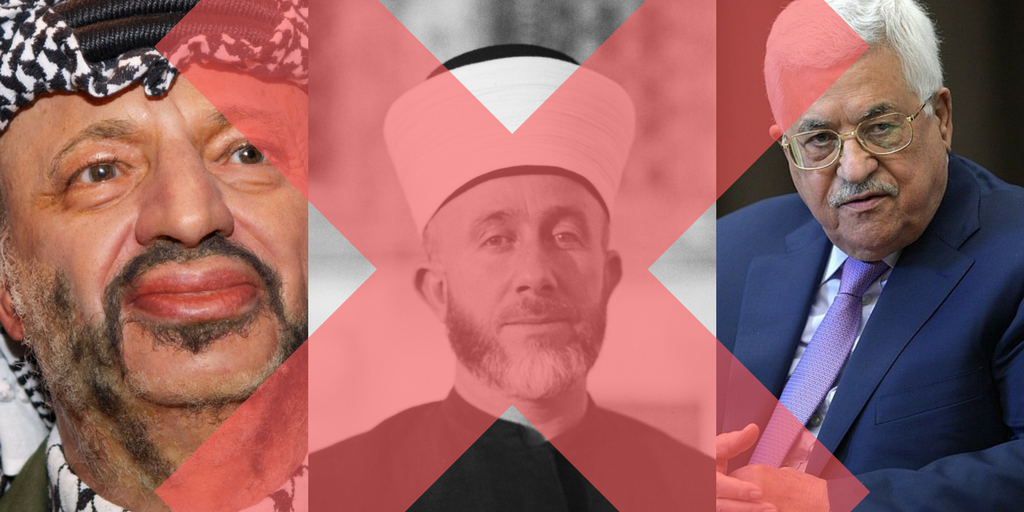…and bring peace to the Middle East.
In 1990, there were half as many Palestinians as Kuwaitis in Kuwait. Two years later there were almost none.
With the support of the international community, some 700,000 Kuwaitis expelled hundreds of thousands of Palestinians from their country. If they had not done it, basic arithmetic shows that the Palestinians would have outnumbered Kuwaitis in Kuwait in a generation.
The Palestinians of Kuwait were kidnapped, tortured and killed. “Kill a Palestinian and Go to Heaven,” became the slogan. When Kuwait was “liberated”, tanks and armored vehicles were sent into the Hawally suburb of Kuwait City known as Little Palestine. Half the buildings were knocked down by bulldozers. Some detained Palestinians were buried in mass graves. The vast majority, including those who had been born in Kuwait, were deported or forced to flee a land they had lived in for a generation.
The violent ethnic cleansing of hundreds of thousands of Palestinians went mostly unremarked. While the Kuwaitis were ethnically cleansing their Palestinians, they continued to fund Palestinian terror against Israel and condemn Israel for violating the human rights of those they were deporting.
And the world shrugged.
President George H.W. Bush defended Kuwait’s actions. “I think we’re expecting a little much if we’re asking the people in Kuwait to take kindly to those that had spied on their countrymen that were left there,” he said. This was in the same press conference in which he condemned Israeli “settlements.”
A year later, Israel expelled 400 Hamas members. Every human rights organization was outraged. The State Department “strongly” condemned Israel. And Israel was forced to take them back.
The Kuwaiti Nakba isn’t much remembered. There are no rallies full of old women clutching house keys to lost homes in Hawally. They had made a bad bet by backing Saddam Hussein. And paid the price for it.
Kuwait refused to allow Palestinian Authority leader Abbas to visit until he apologized for supporting Saddam. And apologize he did. “Yes, we apologize for what we have done,” the terror boss whined.
The PLO has yet to apologize to Israel for the Muslim settler role in the attempted 1948 genocide of the indigenous Jewish population and the thousands who were maimed and murdered by its terrorists.
Israel, like Kuwait, should have demanded an admission of guilt from Abbas for the PLO’s crimes.
The Kuwaiti Nakba has much in common with what took place in Israel. Palestinians had arrived in both Kuwait and Israel as a cheap labor force to take advantage of the economic boom of a feudal economy becoming industrialized. The “Palestinians” of Israel were not some ancient people but a mass of migrants, mostly from Israel’s neighbors, but occasionally from as far away as Sudan and Senegal in Africa, who were seeking economic opportunity. The existence of the Afro-Palestinians makes it quite clear that they are not a distinct ethnic or national group, but migrants who came from outside Israel.
Over half of the so-called “Palestinian” population lives outside Israel. Many continue to be economic migrants. That is what brought them to Kuwait. And the Kuwaitis were not the only ones to kick them out. Nor are the “Palestinians” the only migrating group that got caught without a country when the game of national musical chairs ended with a lot of new countries with old names dotting the map.
“Palestinians” embraced an imaginary and ahistorical identity because they had been locked out of every other political setup by new governments and tribal arrangements. And that’s not unique.
Kuwait’s other stateless group are the Bedoon. Like the Palestinians, the Bidoon were migrants. The Kuwaitis chose not to recognize them as citizens. There is one Bidoon for every ten Kuwaitis. But that is typical in a region where large nomadic groups around the region exist outside governmental structures.
In this century, hundreds of thousands of people were displaced in Iraq, Libya and Syria. Many of the countries in the region are on the verge of similar civil wars between quarreling ethnic and religious groups. The mass flow of migrants into Europe is an extension of the migratory nature of the region.
All of these problems have a single cause. That cause is the failure of the Arab Muslim nation state.
This century exposed how fragile and artificial most of the countries whose existence we take for granted, Egypt, Syria, Iraq, Yemen, Lebanon and Libya, really are. A little instability and they collapse into quarreling tribes. These tribal conflicts have the same root cause as the “Palestinian” problem.
The Palestinian problem can’t be solved without resolving the problem of the Arab Muslim nation state.
The civil wars in Syria and Iraq, the flow of migrants into Europe and the latest itineration of the failed Palestinian peace process all stem from the conflict between the natural tribe and the artificial nation state. The Arab Muslim nation state is incapable of resolving these tribal conflicts.
That is the source of the tyranny, instability and violence in the Middle East.
No amount of concessions or negotiations by Israel will do anything except create more instability. Decades of Israeli concessions have only led to terrorism, violence, death and misery. If Israel ceased to exist tomorrow, the place where it was would be as much of a disaster area as Yemen or Syria.
It’s often pointed out that the Palestinians are a fictional national identity. But the Iraqis, Syrians and many others are equally artificial; historical names attached to fake countries. We weren’t the first Westerners to think that we could fix the Middle East by making them just like us. Before we tried exporting democracy, the British and the French exported nationhood with all the trimmings of flags, constitutions and anthems. Just like Arab Muslim democracy, the Arab Muslim nation state is a farce that spreads misery, instability and violence.
We can best fix the Middle East by ending all the failed efforts to turn it into Europe and America. And reversing them. Stop recognizing Arab Muslim countries that have incompatible populations. They’re dictatorships on the verge of a civil war. And that civil war will eventually drag us in as Iraq and Syria did.
Whenever possible, deal with tribal and other organic regional leaders, not fake national governments. In Iraq, that means an end to the failed policy of only dealing with the Shiite puppet regime in Baghdad while ignoring the Sunni tribal leaders and the Kurdish authorities. That policy helped create ISIS.
We should recognize discrete regions based on the settlement of natural ethnic, religious and tribal identities. There will inevitably be conflict between these tribal territories, but they will claim far fewer lives than Saddam’s efforts to suppress the Shiites and the Marsh Arabs did. Tribes will kill fewer people than a tribal nation state striving to stamp out rivals and competitors with a powerful domestic military.
Borders should not be viewed as permanent. The Middle East is migratory. It is not Europe. An Arab Muslim who moves from Iraq to Syria or flees Kuwait for Jordan is not a refugee. When you start defining every migrant in a region with an extensive nomadic history as a refugee, the end result is the absurdity of the Palestinian refugee cities of Jordan or the million migrants showing up in Europe.
If you go back far enough, everyone in the Middle East is a refugee.
Instead of trying to resettle fake refugees, we should encourage the settlement of discrete territories with natural borders that create physical and defensible divisions between different groups. That rules out any of the lunatic peace schemes for a Palestinian state with a capital in Jerusalem and a territory that cuts through Israel. These plans have failed and will go on failing for the same reason that Iraqis are still killing each other despite our best efforts to talk, bribe and bomb them out of it.
The indigenous Jewish population and the Muslim migrants who settled in Israel are inherently incompatible. The Palestinian problem might be solved somewhere in Jordan or Syria. History and experience tells us it will never be solved in Israel.
The Israeli government should begin distinguishing between the Muslim settler population based not on artificial borders dating back to a particular war but on clan and ethnicity.
The Circassians who migrated to Israel in the 19th century from the Caucasus have not been a problem. These Ottoman military colonists are Muslims, but they serve in the Israeli military and have no interest in joining in the tribal wars of other Muslims against the Jews. The Husayni clan, which gave us Arafat and the Mufti of Jerusalem, has been a source of strife and violence in the region for far too long.
Israel doesn’t have a national problem with the “Palestinians”, it faces threats from marauding clans which dominate the leadership of Islamic terror groups such as the PLO and Hamas. No one has managed to make peace with the Husaynis yet. And they never will.
The first step to solving the Palestinian problem is to recognize that it doesn’t exist. The second is to determine which clans would be more compatible where. That is a process that must take place across the region in Syria, Iraq, Yemen, Libya, Israel and beyond. And it is far more likely to bring peace than any amount of negotiations and peacekeeping missions.
The great error of Western foreign policy in the region was the belief that stability was best achieved through modernization. The Arab Muslim world is not going to turn into Europe.
We should let it be what it is. Its tribalism won’t bring peace. But it can limit the scope of its wars.
Originally Published on FrontPageMag.







